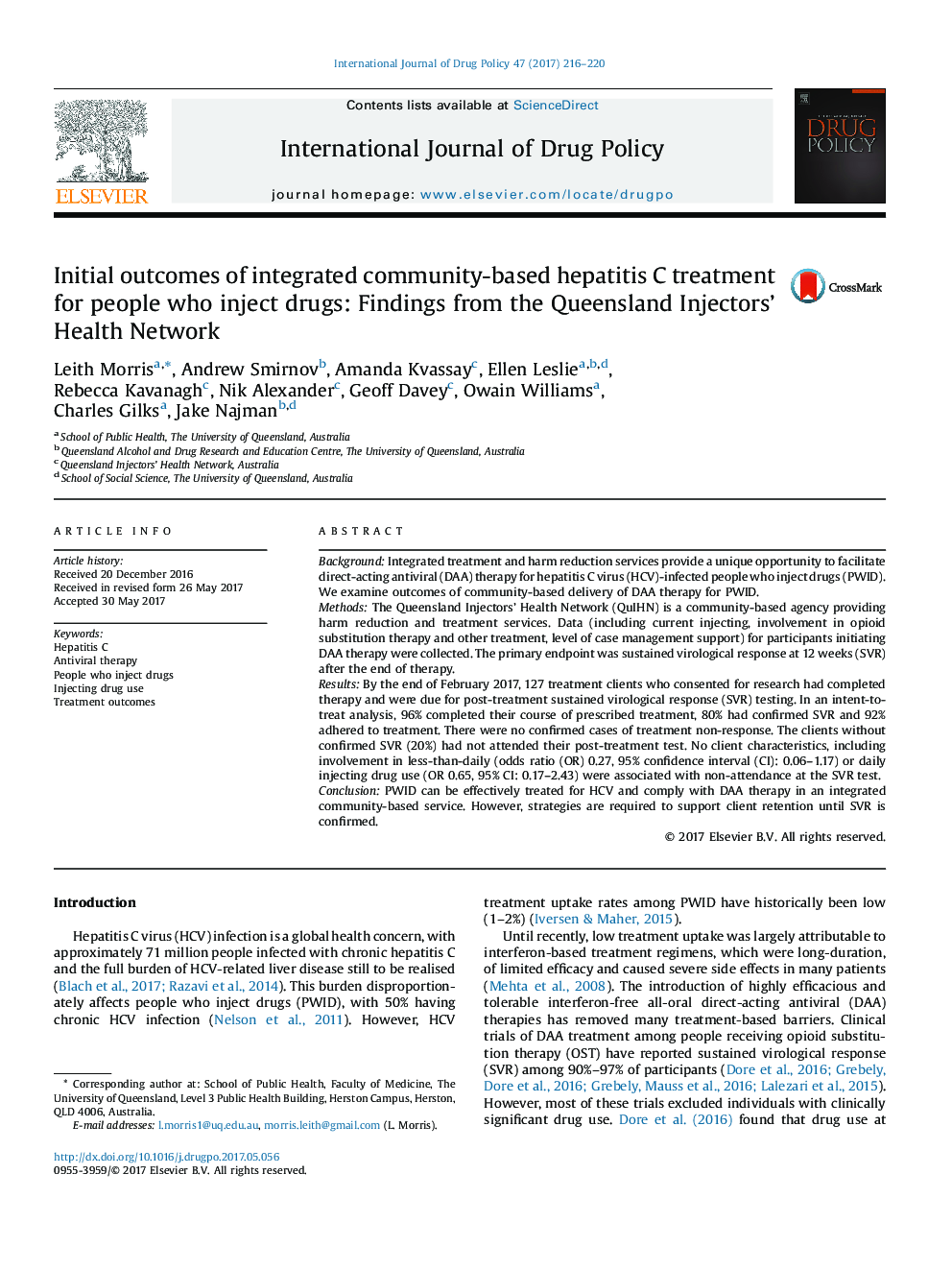| Article ID | Journal | Published Year | Pages | File Type |
|---|---|---|---|---|
| 5120819 | International Journal of Drug Policy | 2017 | 5 Pages |
BackgroundIntegrated treatment and harm reduction services provide a unique opportunity to facilitate direct-acting antiviral (DAA) therapy for hepatitis C virus (HCV)-infected people who inject drugs (PWID). We examine outcomes of community-based delivery of DAA therapy for PWID.MethodsThe Queensland Injectors' Health Network (QuIHN) is a community-based agency providing harm reduction and treatment services. Data (including current injecting, involvement in opioid substitution therapy and other treatment, level of case management support) for participants initiating DAA therapy were collected. The primary endpoint was sustained virological response at 12 weeks (SVR) after the end of therapy.ResultsBy the end of February 2017, 127 treatment clients who consented for research had completed therapy and were due for post-treatment sustained virological response (SVR) testing. In an intent-to-treat analysis, 96% completed their course of prescribed treatment, 80% had confirmed SVR and 92% adhered to treatment. There were no confirmed cases of treatment non-response. The clients without confirmed SVR (20%) had not attended their post-treatment test. No client characteristics, including involvement in less-than-daily (odds ratio (OR) 0.27, 95% confidence interval (CI): 0.06-1.17) or daily injecting drug use (OR 0.65, 95% CI: 0.17-2.43) were associated with non-attendance at the SVR test.ConclusionPWID can be effectively treated for HCV and comply with DAA therapy in an integrated community-based service. However, strategies are required to support client retention until SVR is confirmed.
